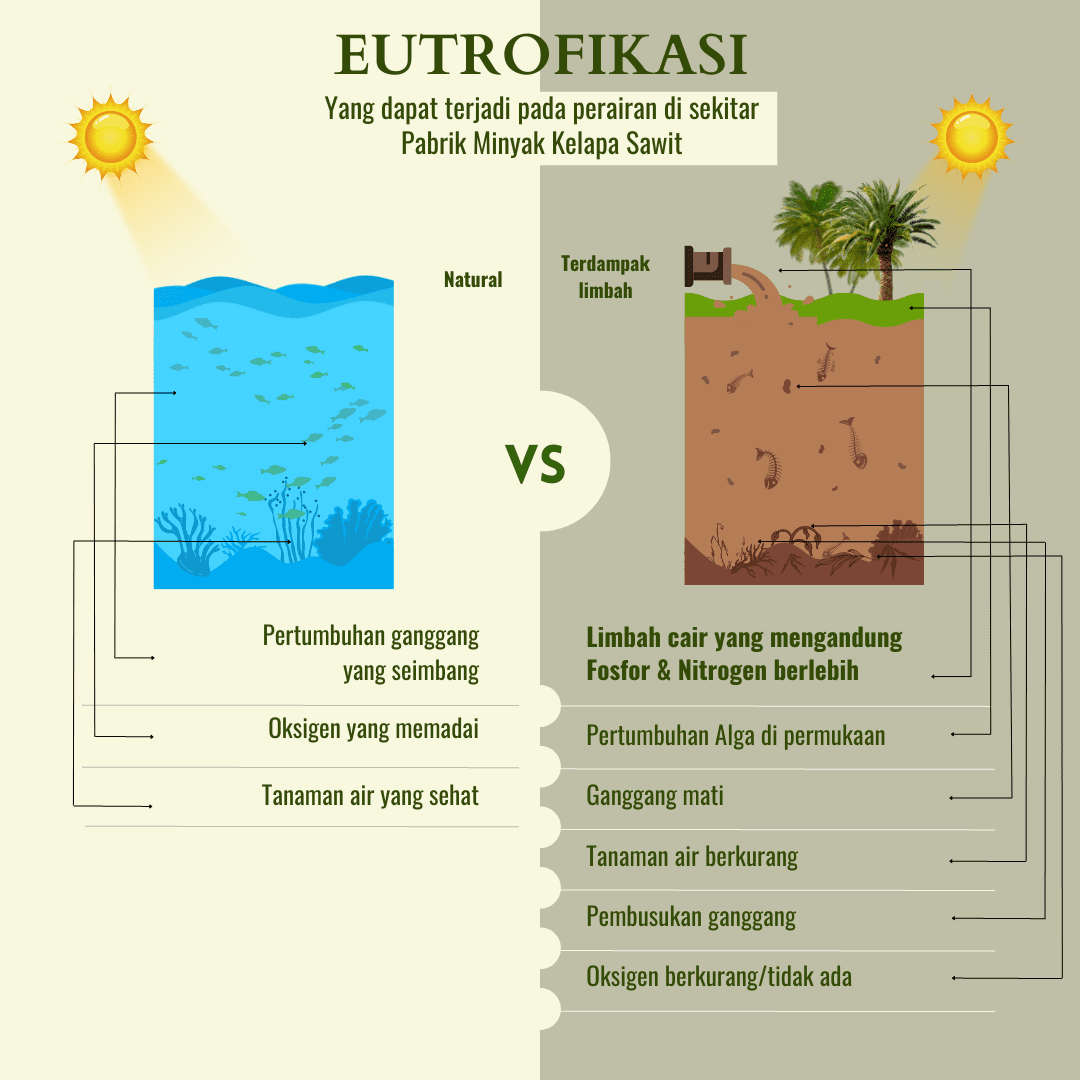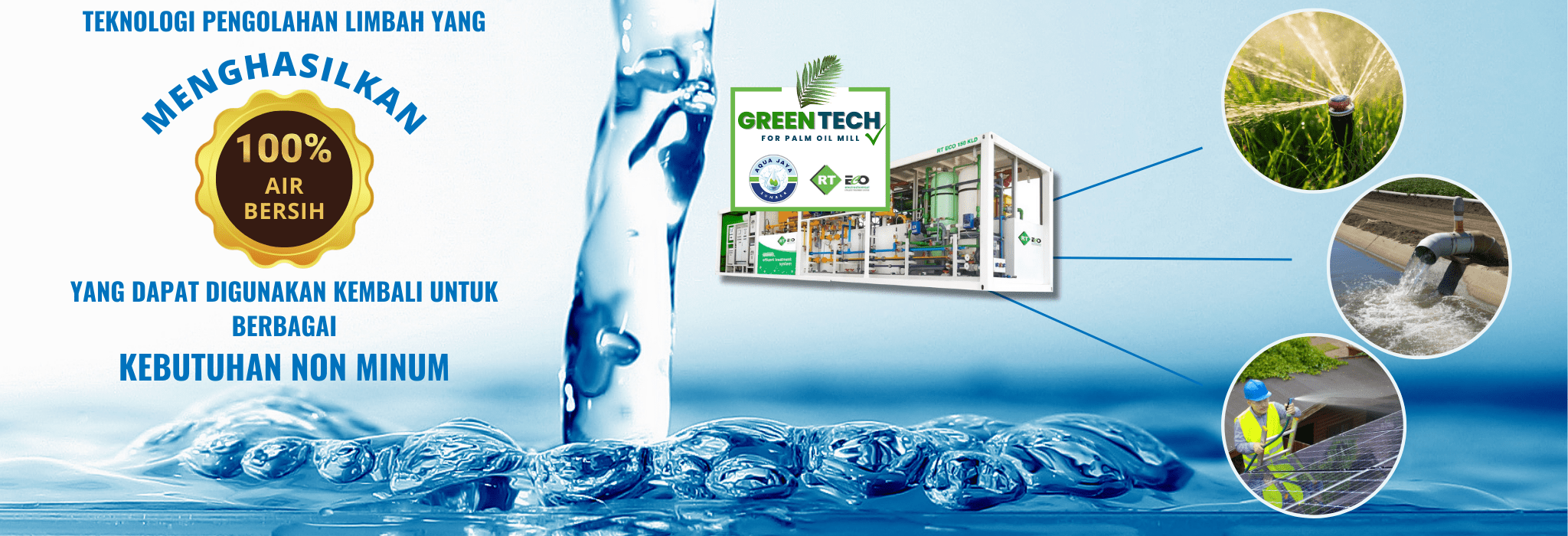Eutrophication: The impact of rapid Palm Oil Industrialization on water quality in Indonesia
The rapid palm oil industrialization in Indonesia has contributed to eutrophication, which is the process of excessive nutrient enrichment in water bodies. Palm oil cultivation requires the use of fertilizers, which contain high levels of nitrogen and phosphorus. When these nutrients are washed off the plantations by rainfall or irrigation, they can enter nearby waterways and cause eutrophication.
Eutrophication can have a range of negative impacts on water quality and aquatic ecosystems. Excessive nutrient levels can lead to the growth of harmful algal blooms, which can deplete oxygen levels in the water and harm fish and other aquatic life. In addition, eutrophication can lead to the accumulation of organic matter, which can contribute to the growth of bacteria and other microorganisms that can be harmful to human health.

To address the issue of eutrophication in Indonesia, it is important to implement sustainable palm oil cultivation practices that minimize the use of fertilizers and promote the use of wastewater for irrigation.
In addition, effective wastewater treatment practices can help to reduce nutrient runoff from palm oil mills and other industrial facilities.
Regulatory frameworks can also play a critical role in addressing eutrophication in Indonesia.
The government can establish regulations that require palm oil mills and other industrial facilities to treat their wastewater before discharging it into waterways, and establish penalties for non-compliance.

Overall, the impact of rapid palm oil industrialization on water quality in Indonesia underscores the importance of sustainable development practices and the need to balance economic growth with environmental protection and human health. By taking steps to address eutrophication and promote sustainable palm oil cultivation practices, it is possible to protect water resources and promote sustainable development in Indonesia.

